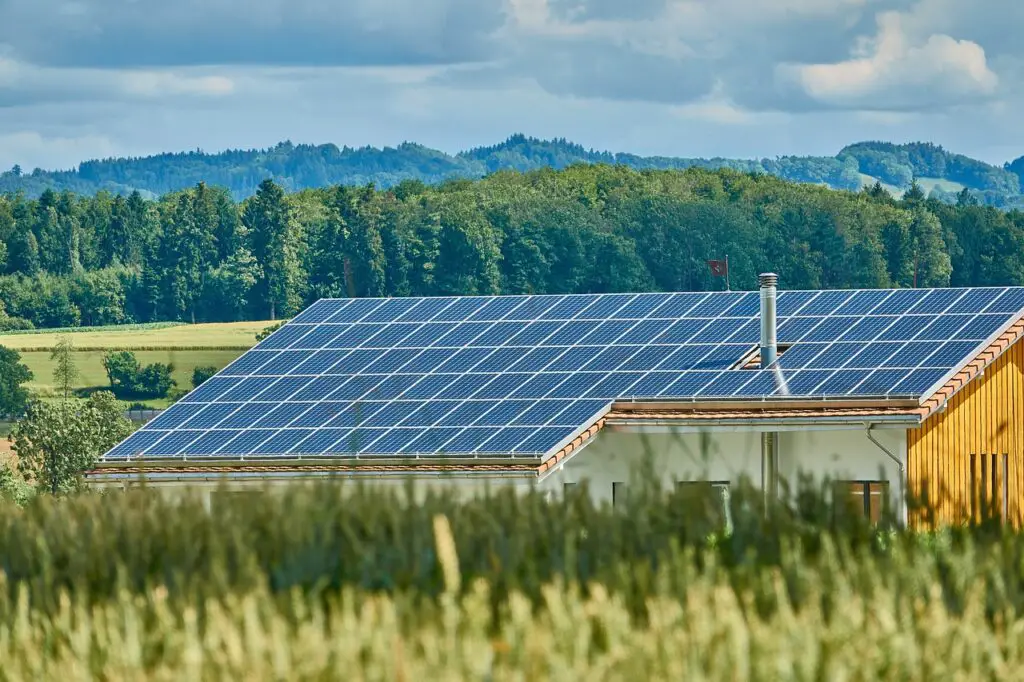Solar energy is a renewable resource that plays a significant part in lowering greenhouse gas emissions and preventing climate change, which is essential for safeguarding people, animals, and ecosystems. Additionally, the usage of solar energy can minimize water use and enhance air quality.
Compared to many other kinds of energy, it has significant environmental benefits. We’ll discuss five ways solar energy helps ecosystem recover and be preserved in this post.
The Environmental Benefits of Solar Energy
Solar Reduces Greenhouse Gases Emissions
We can greatly reduced (CO2) by using solar energy to generate electricity instead of fossil fuels, greenhouse gas emissions, especially carbon dioxide. Burning fossil fuels releases greenhouse gases, which contribute to climate change and rising global temperatures.
Across the nation and the world, substantial environmental and public health problems are already a result of climate change, from wildfires in the West to more frequent and powerful big storms in the East.
But now you can lessen the need for fossil fuels, regulate greenhouse gas emissions, and lower your own carbon footprint by switching to solar power.
Consider a house in Connecticut as an illustration; this state isn’t especially famed for its sunny days. The U.S. Energy Information Administration estimates that the typical Connecticut home with solar panels uses 8,288 kilowatt-hours (kWh) of power per year. For that home in cloudy Connecticut, converting to solar energy has the same emissions reduction effect as planting 150 trees annually for the lifetime of the solar panel system.
The carbon emissions produced by burning more than 5,000 pounds of coal per year may be replaced by using a solar panels.
Solar Energy Reduce Water Pollution
The use of solar power systems doesn’t even require any water. This is a big advantage over other energy sources that require a lot of water for production and refining, such as coal, natural gas, and even sustainable biomass.
Solar Reduces Our Reliance on Scarce Resources
By definition, fossil fuels aren’t “sustainable.” Since the Industrial Revolution, people have used these resources extensively, and they will soon run out. There are already worries about competition for scarce fossil fuels pushing up mining and extraction prices.
These concerns are alleviated by the use of solar energy. Utilizing solar energy for residential use enables us to protect natural resources, as well as lessen the financial strain and environmental cost of relying on fossil fuels.
Solar Energy is Plentiful and Renewable
For at least the remainder of our lives and many generations to come, the sun will always be risen. We can satisfy all of our electrical demands by utilizing the free resources it offers.
An astounding 120,000 terawatts of solar energy reach the surface of the globe, which is 20,000 times more energy than would be required to power the whole planet. There is no such thing as using this power “too much.” Because of these factors, solar energy is seen as being exceedingly plentiful and renewable.
Solar Energy Improve Local Air Quality
The fact that solar energy produces relatively little air pollution is one of its main advantages. According to NREL’s study, broad solar adoption can considerably lower emissions of nitrous oxide, sulfur dioxide, and particulate matter, all of which can be harmful to human health. In addition to other health advantages, NREL discovered that solar power reduces the incidence of chronic bronchitis, respiratory and cardiovascular disorders, and lost workdays due to illness.
